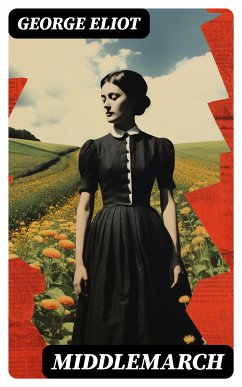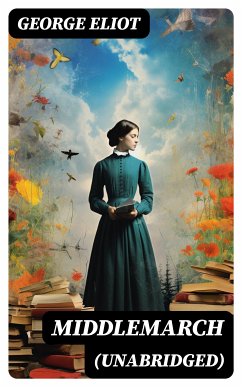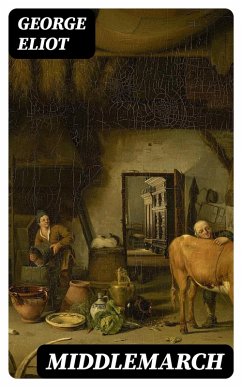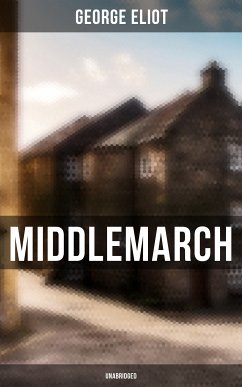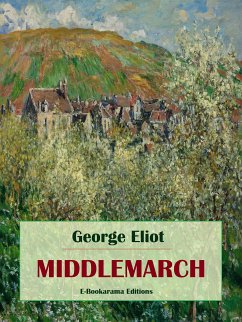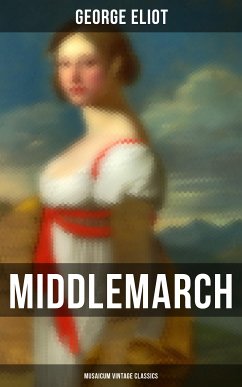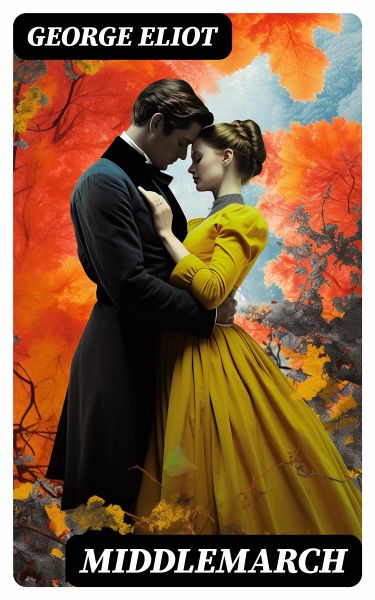
Middlemarch (eBook, ePUB)

PAYBACK Punkte
0 °P sammeln!
In "Middlemarch," George Eliot crafts a richly textured panorama of provincial life in 19th-century England, combining intricate character studies with profound social and political commentary. The novel is renowned for its innovative narrative style, marked by psychological depth and a multifaceted perspective that explores the interconnected lives of its diverse cast. Eliot navigates themes of ambition, marriage, idealism, and the quest for meaning, highlighting the struggles of her characters against the constraints of their society, making it an essential work reflecting the complexities o...
In "Middlemarch," George Eliot crafts a richly textured panorama of provincial life in 19th-century England, combining intricate character studies with profound social and political commentary. The novel is renowned for its innovative narrative style, marked by psychological depth and a multifaceted perspective that explores the interconnected lives of its diverse cast. Eliot navigates themes of ambition, marriage, idealism, and the quest for meaning, highlighting the struggles of her characters against the constraints of their society, making it an essential work reflecting the complexities of modernity in the Victorian era. George Eliot, the pen name of Mary Ann Evans, defied the gender norms of her time, using her intellect and literary prowess to illuminate the plight of women and the injustices present in society. Her own experiences of living in a male-dominated world and her keen observations of contemporary social issues inspired her to write "Middlemarch," which stands as a testament to her belief in the moral imperative of individual responsibility and societal change. Eliot's philosophical inquiries and psychological realism resonate throughout the novel, reflecting her commitment to truth and empathy in storytelling. "Middlemarch" is highly recommended for readers seeking not only a compelling narrative but also a thoughtful exploration of human psychology and societal dynamics. Its relevance endures, inviting readers to reflect on personal and social aspirations in their own lives. This intricate tapestry of interwoven destinies will captivate anyone interested in the complexities of human experience.
Dieser Download kann aus rechtlichen Gründen nur mit Rechnungsadresse in A, B, BG, CY, CZ, D, DK, EW, E, FIN, F, GR, H, IRL, I, LT, L, LR, M, NL, PL, P, R, S, SLO, SK ausgeliefert werden.




